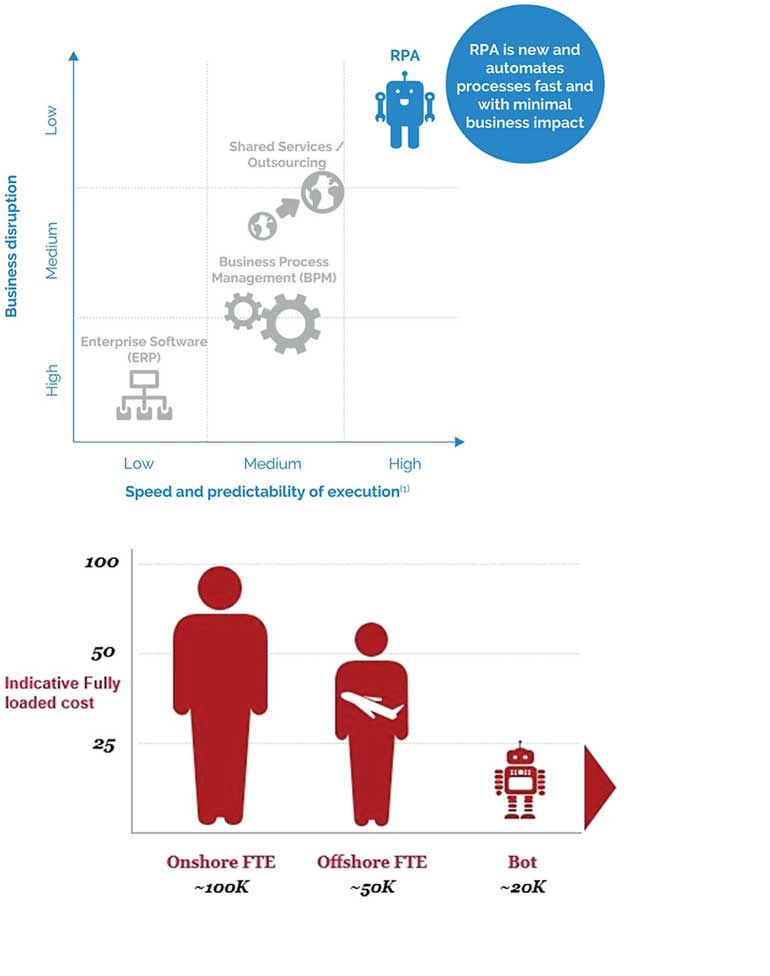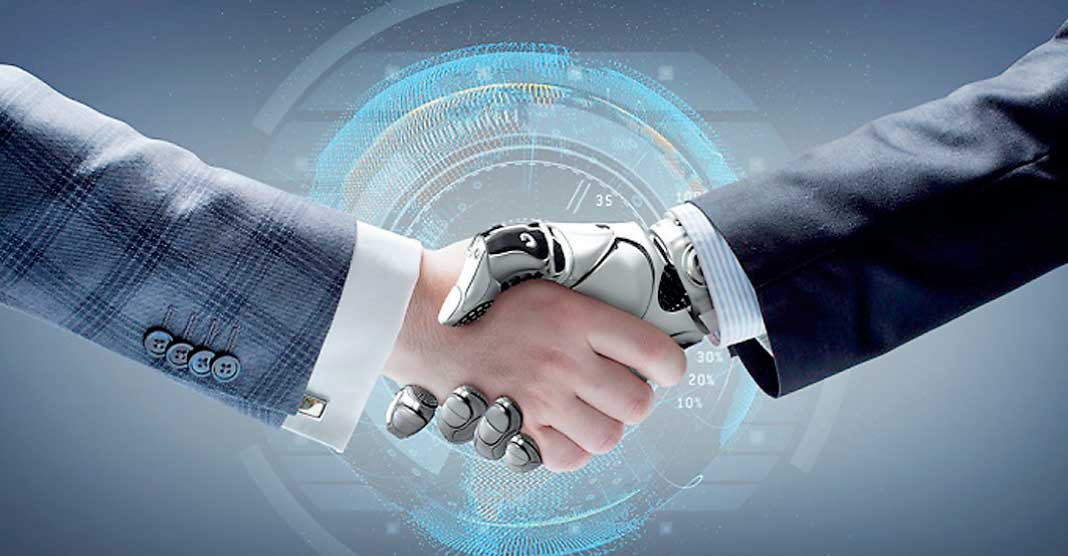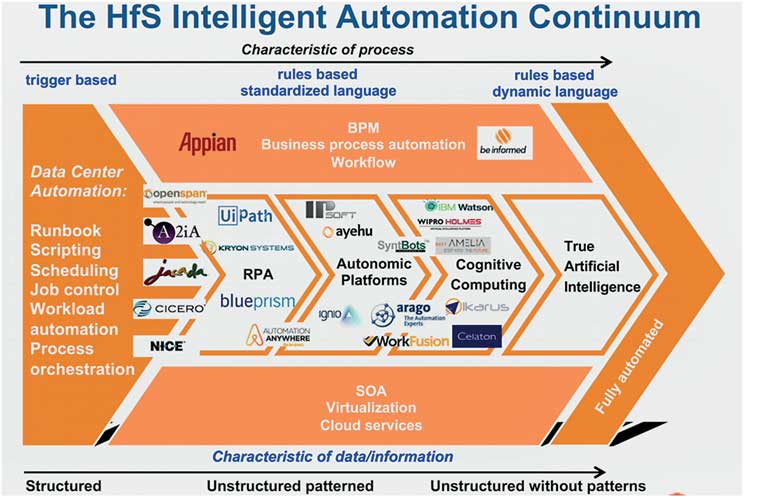Sunday Feb 15, 2026
Sunday Feb 15, 2026
Friday, 5 January 2018 00:00 - - {{hitsCtrl.values.hits}}




We are in a rapidly-changing world where industries have seen many revolutions in the past. The First Industrial Revolution used water and steam power to mechanise production. The Second used electric power to create mass productions. The Third used electronics and information technology to automate production. Now we stand on the brink of a technological revolution (Industrial Revolution 4.0) that will fundamentally alter the way we live, work and relate to one another.
In its scale, scope, and complexity, the transformation will be unlike anything humankind has experienced before (World Economic Forum 2016). It is characterised by a fusion of emerging technology breakthroughs such as Artificial Intelligence, robotics, big data, Internet of Things (IoT), Clouds, and nanotechnology that are blurring the lines between the physical, digital, and biological spheres. The Industrial Revolution 4.0 is evolving at an exponential space almost disrupting every industry and leading to another paradigm shift by enabling humans to interact and work closely with virtual workforce called “bot” (internet or web robots).
We have seen computers beating chess world champions and responding to voice commands in smart phones many years ago, but we are yet to experience the real use of Artificial Intelligence (AI) in workplaces. AI is used to create programing codes in computer systems to perform highly complex tasks where normally require human intelligence such as speech recognition, visual perception, translation and decision-making capabilities. Based on the characteristics of the process and data/ information (figure 01), the complexity of the automation is divided into three categories;
a) Robotic Process Automation – automate processes which are rule-based, standardised and repeatable
b) Intelligent Automation –automate processes which are unstructured but patterned with standardised language capability
c) Cognitive Automation –automate processes which are unstructured without patterns and use dynamic language capabilities to perform highly complex work
There are multiple automation platforms used in the service industry namely Bluprism, Automation Anywhere and UiPath out of few with RPA capability in process automation. It is expected to reach human levels of intelligence by 2032 which will create the true AI platform (Ray K, Director of Engineering Google).
Robotics are beginning to have a profound effect on businesses and started to dominate the knowledge-based industry with automation of processes which are repetitive, routine, structured and rule-based. The bots are internet based and not a physical construct like a Robotic machine in the manufacturing industry. The RPA trained coding specialists create bots to mimic human behaviour activities on a process and develop programs using machine learning algorithms to repeat or reimagine the same process to function automatically to deliver the desired results without any human intervention.
Traditionally, multinational companies introduced various strategies including implementation of ERP systems, Shared Services and Outsourcing models to create efficiency and effectiveness on the front-end and back-office processes (figure 02). RPA elevates the value chain to the next level by automating the activities in the down-stream and up-stream processes and few of the tangible benefits are mentioned below:
Most of the blue collar jobs were started to get replaced with machines during the Third Industrial Revolution almost 50 years ago and it is still continue to get automated using AI and other distruptive technologies. The Fourth Industrial Revolution directly impacts the service industry as most of the white collar jobs will be replaced by new virtual employees. As per PwC estimates 2016, 45% of the white collar jobs can be automated, which will produce approx. $ 2 trillion savings on the global workforce cost.
Currently AI companies have created bots using different platforms to perform the same work much faster, cheaper and accurately compared to human intervention. We have already seen some of the current technological inventions which will impact jobs like drivers, couriers, journalists, translators, personal secretaries and financial advisors and getting replaced by driverless cars, drones, Intelligent OneOffice and Cognitive Agent and to the extent of assisting surgical operations through bots like “Watson” which is developed by IBM. Also, Enfield Council in the UK employed the first public sector digital employee called “Amelia” to answer the questions of local residents. Amelia has an emotional ontology in which the words exchanged in the customer dialogue are mapped onto a well-established psychological model to understand the context of the conversations, apply logic, learn, resolve problems and even sense the emotions of the person it is speaking with (IPsoft 2016).
It is predicted that automation of knowledge work will potentially impact the economy by $5.2-S6.7 trillion in 2025 and additional labour productivity could equal the output of 110-140 million full-time workers (Mckinsey& Co 2016).
The RPA will help to release people from routine and uninteresting jobs and allow them to focus more on the core business. Also new jobs are getting created like app developers, data scientist, UI/ UX designer, cloud service specialist, big data architect and digital marketing specialist which boomed in the last 10 years. The generation intelligence levels are keep multiplying and it is believed that the Millennials who got the direct exposure to IoT from birth will bring more innovative and disruptive technological solutions to make the life and work easy.
To what extent is your organisation currently implementing digital labour/RPA? As per PwC global analysis 2016, 74% of the multinational companies are already either in some stage of implementing RPA or conducting Proof of Concept (PoC) to evaluate the opportunities for automation. Sri Lanka is not too far as the local service industry is predominately dominated by Banking, Financial Services and Insurance (BFSI), healthcare and Telecommunication industries where there is a high potential to automate processes like customer services, data entry and analysis, mass email management, conversion of data formats and graphics, ERP transactions and file storage.
There are many IT and Business Process Management (BPM) companies in Sri Lanka have already commenced the RPA journey for its multinational global clients and SLASCOMM the governing body of IT/ BPM companies in Sri Lanka is aiming to grow the outsourcing industry to $5 billion revenue mark by 2020. The international exposure and best practices from IT/ BPM industry is a key to develop internal talent and RPA capability in Sri Lanka, which will eventually influence and support the domestic market in the service industry to begin its RPA journey soon.
AI, robotics, machine learning, technology and today’s businesses are so intimately intertwined that it’s impossible to progress without optimising on the innovation front (Group CEO, WNS Global Services and NASSCOM BPM Chairman, Keshav Murugesh). As macroeconomic conditions continue to put pressure on profit margins across sectors, it is inevitable to generate value creation to its stakeholders through disruptive technologies such as AI and RPA will be the core part of organisations’ next-generation operating models for sustainability. Are you and your organisation ready to embrace the change and welcome your new virtual employee?
[The writer is a Senior General Manager at WNS Sri Lanka and counts over 19 years of experience in varied industries such as banking, financial services, insurance, consulting and outsourcing. He has 12 years of experience in the BPM industry and one of the pioneer in full Finance and Accounting Outsourcing (FAO) lifecycle from sales, solution design through to service transitioning, management of operations and transformation for large multinational companies with in-depth working knowledge of UK, North America, Europe and Asia region. He is currently reading a Doctorate from UK and researching in Organisational Agility and Artificial Intelligence. He can be reached via [email protected].]